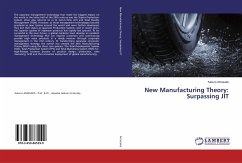This research examines the effects of an individuals attachment style, or ways of relating to others, and their level of employee engagement. One hundred and sixteen individuals from a variety of industries took part in an online survey. In addition to measuring their level of engagement, this research examined the participants' attachment style across two dimensions, anxiety (low to high) and avoidance (low to high). The research confirmed the hypothesis: that individual's with a secure attachment (low on anxiety and avoidance) exhibited a statistically significant and higher level of engagement than those with an insecure (dismissing, fearful) attachment style. Secure employees express their positive beliefs (and act accordingly), supporting the organization's goals and outcomes. Insecure employees do not hold the same positive beliefs-either in themselves and/or in the organization-they misinterpret what the organization is asking of them, leading to decreased levels of engagement. This research represents an exciting next step in demonstrating the attachment theory's ability to broaden our understanding and scope of workplace relationships and employee engagement.
Bitte wählen Sie Ihr Anliegen aus.
Rechnungen
Retourenschein anfordern
Bestellstatus
Storno








